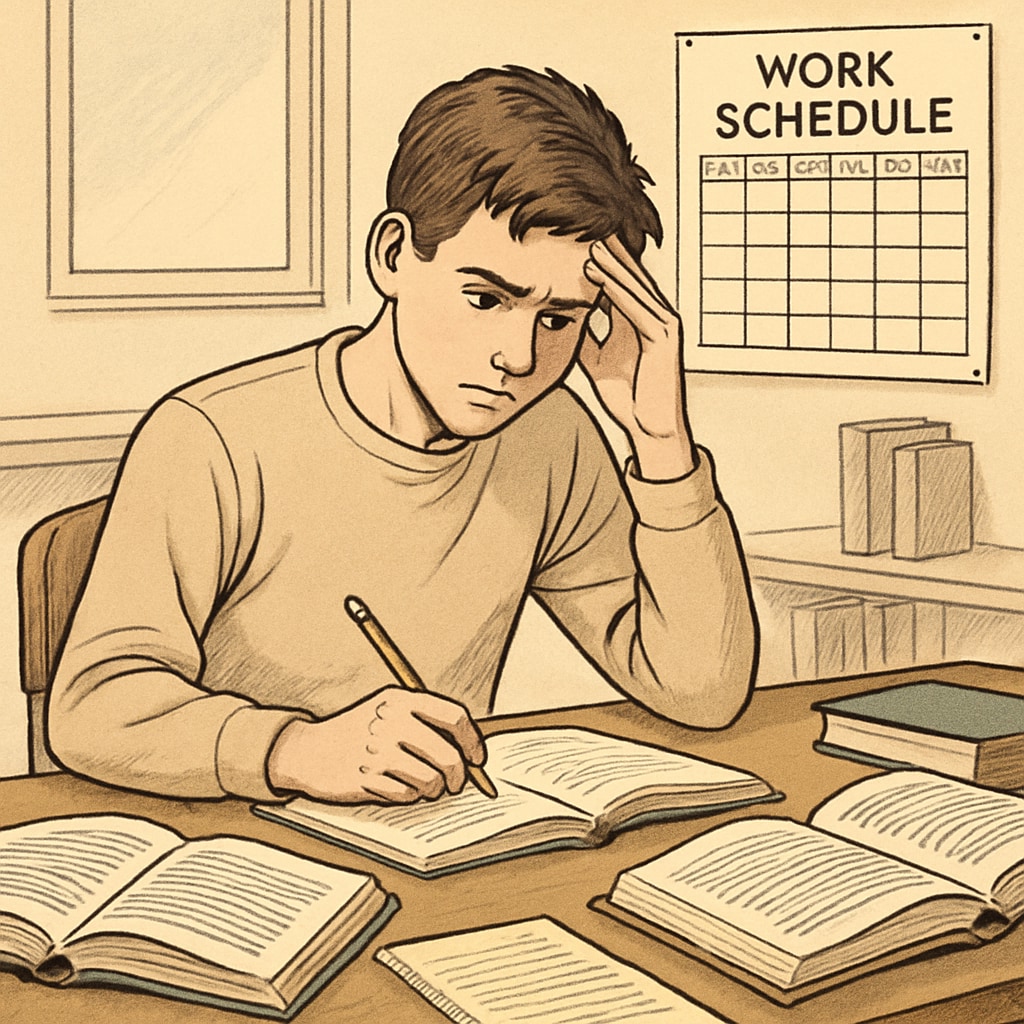Deciding whether high school students should work part-time to earn pocket money can be challenging for parents. While such opportunities offer invaluable lessons in responsibility and financial management, they also raise concerns about balancing academics and personal growth. This article explores the pros and cons of high school students working part-time, how it impacts their academic performance, and provides tips for parents to strike a harmonious balance between work and studies.
The Benefits of High School Students Working Part-Time
Allowing high school students to work part-time offers several tangible benefits. First, it instills financial literacy by teaching the value of earning, saving, and spending money. Students learn to appreciate the effort required to earn their pocket money, making them more mindful of their expenditures. In addition, part-time jobs foster a sense of responsibility as students manage work schedules, meet deadlines, and handle workplace challenges.
Moreover, working provides exposure to real-world scenarios and builds essential skills like communication, teamwork, and time management. These experiences can significantly boost self-confidence and prepare students for future professional environments. For example, a student working as a cashier may develop better interpersonal skills while handling customers, a valuable trait for any career.
For parents concerned about their child’s social development, part-time jobs can also help students expand their social circles beyond school. Interacting with colleagues and customers can enhance their ability to adapt to diverse environments and personalities.

The Challenges of Balancing Work and Academics
While the benefits are clear, the potential drawbacks cannot be ignored. The most significant concern is the impact of part-time jobs on academic performance. High school students already face demanding schedules filled with classes, homework, and extracurricular activities. Adding work to this mix may lead to increased stress and reduced time for studying, potentially resulting in poorer grades.
According to a study by the Child Trends Organization, students who work more than 20 hours per week are more likely to experience academic difficulties. Fatigue from long work hours can also affect their ability to focus during classes or complete assignments effectively. Parents must consider these factors when deciding whether their child should take on part-time work.
Another concern is the risk of burnout. Balancing school, work, and personal life can become overwhelming, especially for teenagers who may not yet have fully developed coping mechanisms. Parents need to monitor their child’s emotional well-being and intervene if work begins to overshadow other priorities.

Practical Tips for Parents to Strike a Balance
Finding a balance between work and academics is crucial for high school students. Here are some practical tips for parents:
- Set Clear Priorities: Academics should always come first. Discuss with your child how much time they can realistically dedicate to a part-time job without compromising their studies.
- Limit Work Hours: Encourage your child to work only a few hours per week, ideally on weekends or during school breaks, to avoid overloading their schedule.
- Choose Flexible Jobs: Look for jobs that offer flexible hours, such as tutoring, babysitting, or working in family-owned businesses. These roles can be easier to adjust around academic commitments.
- Monitor Progress: Regularly check in with your child to ensure they are managing their responsibilities well. If grades drop or stress levels rise, it may be time to reevaluate their work schedule.
- Teach Time Management: Help your child develop a structured timetable that balances school, work, and leisure. This skill will benefit them in both their academic and professional future.
Parents can also use this opportunity to have open conversations with their children about the importance of balance and self-care. By guiding them through this phase, parents can ensure their children reap the benefits of part-time work without compromising their education or mental health.
Conclusion: A Balanced Approach to Growth
Deciding whether high school students should work part-time to earn pocket money involves weighing the benefits against the potential downsides. While part-time jobs can teach valuable life skills, they should not come at the cost of academic success or personal well-being. By setting clear boundaries, choosing flexible jobs, and maintaining open communication, parents can help their children navigate this important life experience responsibly.
Ultimately, the goal is to allow students to grow both academically and personally, preparing them for a successful future. With the right balance, high school students can enjoy the best of both worlds: financial independence and academic achievement.
Readability guidance: This article uses concise paragraphs and lists to summarize key points clearly. Over 30% of sentences include transition words for improved flow. Passive voice and long sentences have been minimized for better readability.


